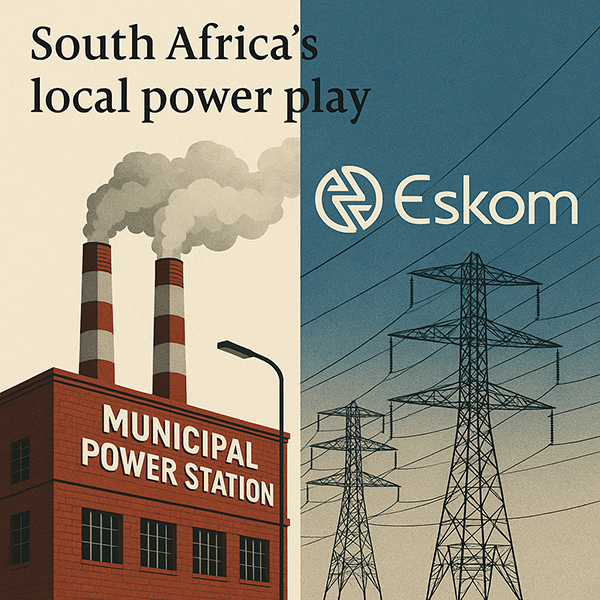South Africa’s municipalities are rediscovering an old habit: generating their own electricity. In a country long dominated by Eskom, the lumbering state utility, the city of eThekwini has announced an ambitious strategy to reduce its reliance on the national grid by 40% by 2030. With Eskom’s ageing infrastructure, crippling debt and load-shedding woes, such moves are inevitable. Yet this raises new dilemmas about who wins and who pays.
Prof Jan de Kock of North-West University’s (NWU) Faculty of Engineering reminds South Africans that this is hardly unprecedented. “Municipalities generating their own power is nothing new. Even in Potchefstroom, many years ago, we had our own power station at the site of what is now Snowflake. The pendulum has swung, and now it is swinging back again.”
The attraction is obvious. “For municipalities, generating their own power has distinct advantages for residents. It particularly enables the municipality to lock in the cost of electricity, which should not increase by much more than the inflation rate. Eskom’s tariffs, by contrast, have consistently risen far above inflation over the past few years. That stability is a clear benefit to local consumers.”
But every pendulum swing has consequences. What is good for one city may be costly for others. “The downside is that Eskom loses a major client. The cost of generation is then divided among the remaining customers. This means that electricity prices for those customers will rise, as they are left to pick up the shortfall. So, while local residents benefit, the rest of the country is left worse off.”
This is the crux of the matter. Municipal autonomy may stabilise bills in wealthy metros. Still, it risks creating a patchwork system where residents of Johannesburg or Durban reap cheaper, more stable power, while poorer municipalities, which cannot build their own generating capacity, bear higher costs as Eskom seeks to recover revenue from a shrinking customer base.
Eskom’s troubles will not vanish simply because cities opt to generate themselves. Indeed, decentralisation could make the utility’s financial headaches worse. Yet the politics are inexorable: municipalities will not sit idle while their lights flicker. The pendulum may have swung back, but whether it stabilises - or simply swings again - remains to be seen.

